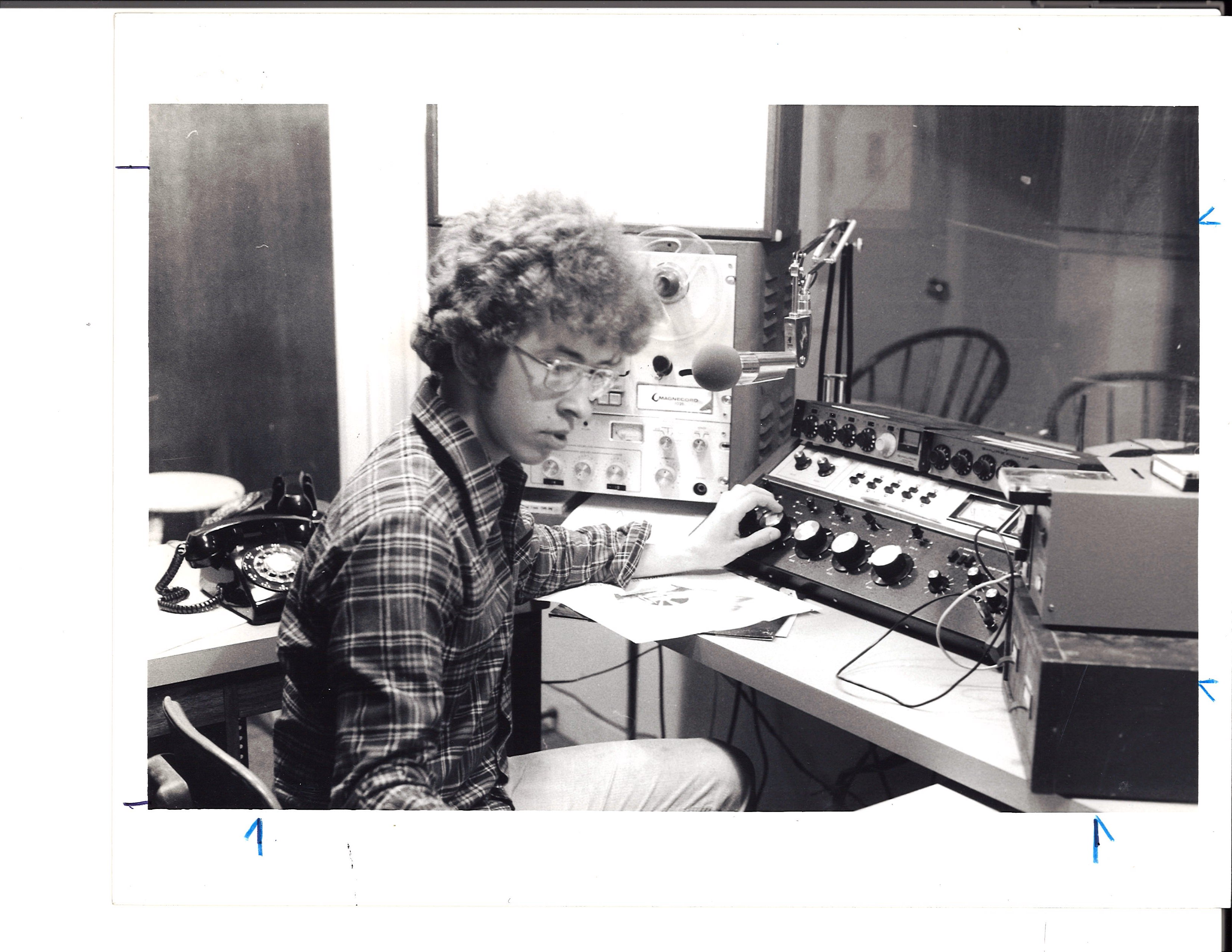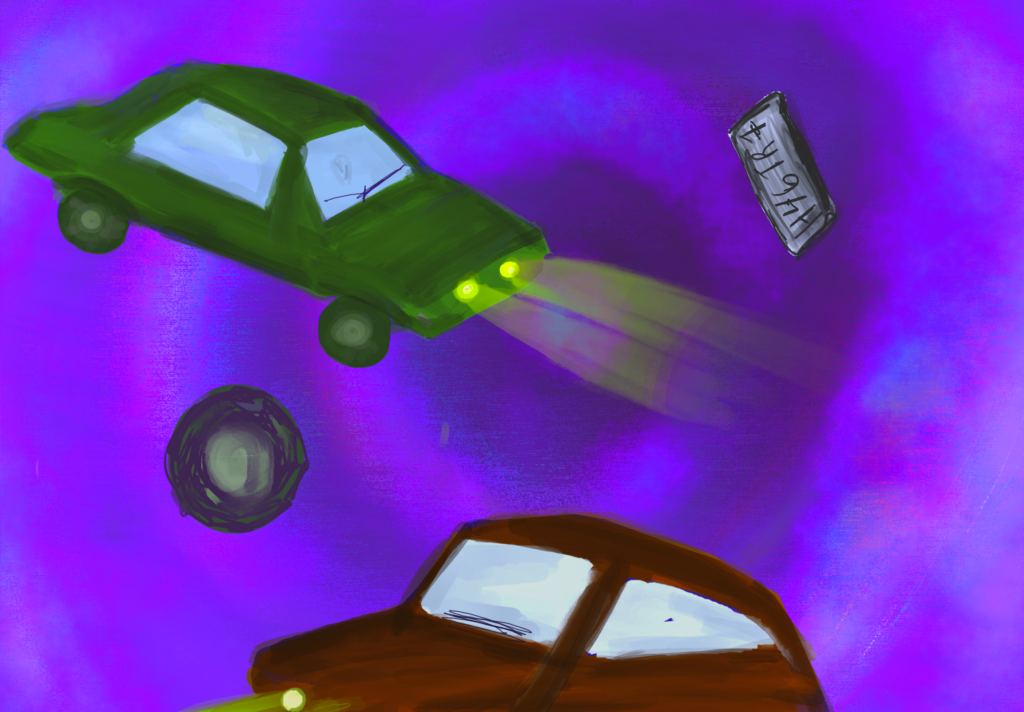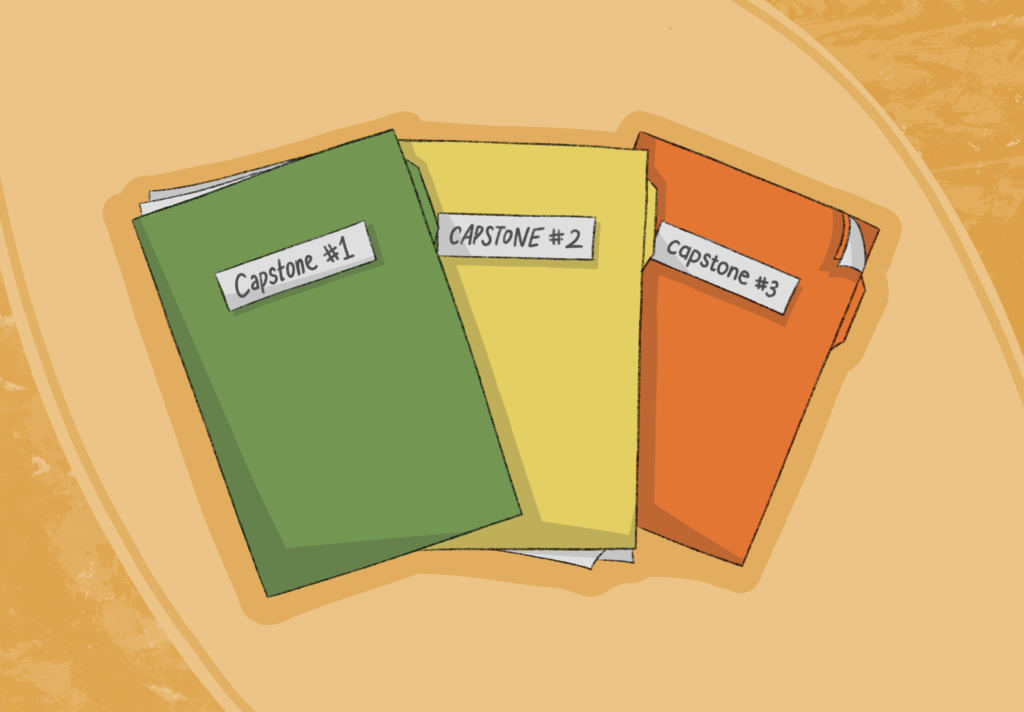
Photo courtesy of the Choate Archives
One weekday in 1988, students’ cheers started in Memorial House, then Library, then spread further. The radio show they’d been tuning into had been interrupted: tomorrow was President’s Day. The announcement didn’t come over email, Instagram, or even the phone — instead, the fastest way to get the word out was through Choate’s own radio station.
WWEB 89.9 FM first hit the airwaves in 1969 as Choate’s student-run radio station. For the next four decades, its staff — sometimes small but sometimes numbering in the dozens — broadcasted a mix of music and news to audiences on and off campus nearly every night.
Through the ’70s, the station focused on news. A number of shows tackled national news, responding to the decade’s thorny political climate. In the weeks leading up to the 1972 election, for instance, sixteen- and seventeen-year-old hosts interviewed numerous significant figures, such as Congresswoman Shirley Chisholm and spokesmen from the Nixon and McGovern campaigns.
Students, many of whom had small radios in their rooms, listened in. A 1973 editorial in The Choate News described the station as “the new forum of this community,” since it was a daily, always-updated broadcast.
By the time the ’90s rolled around, though, WWEB, which always had some music mixed in, decidedly became a music station. DJs — a coveted gig for which there was, at one point, a 120-student waitlist — got to pick music from their personal collection or the station’s own record library.
DJs embraced that freedom. Show taglines from the 2002–03 school year include: “We are eclectic so listen to us” and “Meaningful music/noise broadcasted from under your underground.” According to a 1994 article in the New Haven Register, the sometimes-bizarre mishmash of genres was “dubbed ‘Choate rock’ [and] went by names like ‘noise,’ ‘industrial,’ and ‘techno.’”
Fifth-form dean Mr. Will Gilyard ’98, who hosted a WWEB show with his best friend, described the experience as “incredible, because we played music that we thought our community would love. It was mostly hip hop and R&B, but we also played songs that were obscure to us.” He continued, “We would spend a couple of days thinking about our playlist and what we would talk about. Sometimes we stuck to it, and sometimes not.”
As the only radio station based in Wallingford, its programming also attracted local audiences, who would sometimes call in with song requests. Mr. Gilyard said, “It was as if we had a real following, despite the reality that it may have been ten people listening from Wallingford. We embraced those ten.”
While WWEB’s news days cast a more objective view on Choate and the nation, the variety of shows from its music-focused period put the individuality of each DJ up front. Mr. Gilyard, who said that his show mirrored those from his hometown of the Bronx, said, “We wanted to share our passions, thoughts, and experiences with our peers in a way that gave them access to our culture.”
The station fizzled out for good in the early 2010s. It’s unclear what, exactly, caused it to go off air for the last time, but one can infer: Spotify; social media; mass emails for President’s Day announcements. Although there is still some equipment in its old broadcasting room on the third floor of the humanities building, the School hasn’t paid any licensing fees in several years.
In fact, WWEB’s license with the Federal Communications Commission expires today, April 1. Choate’s 89.9 FM will probably be taken over by a nice classical station, or perhaps a NPR affiliate. And it seems that WWEB won’t get a funeral.




